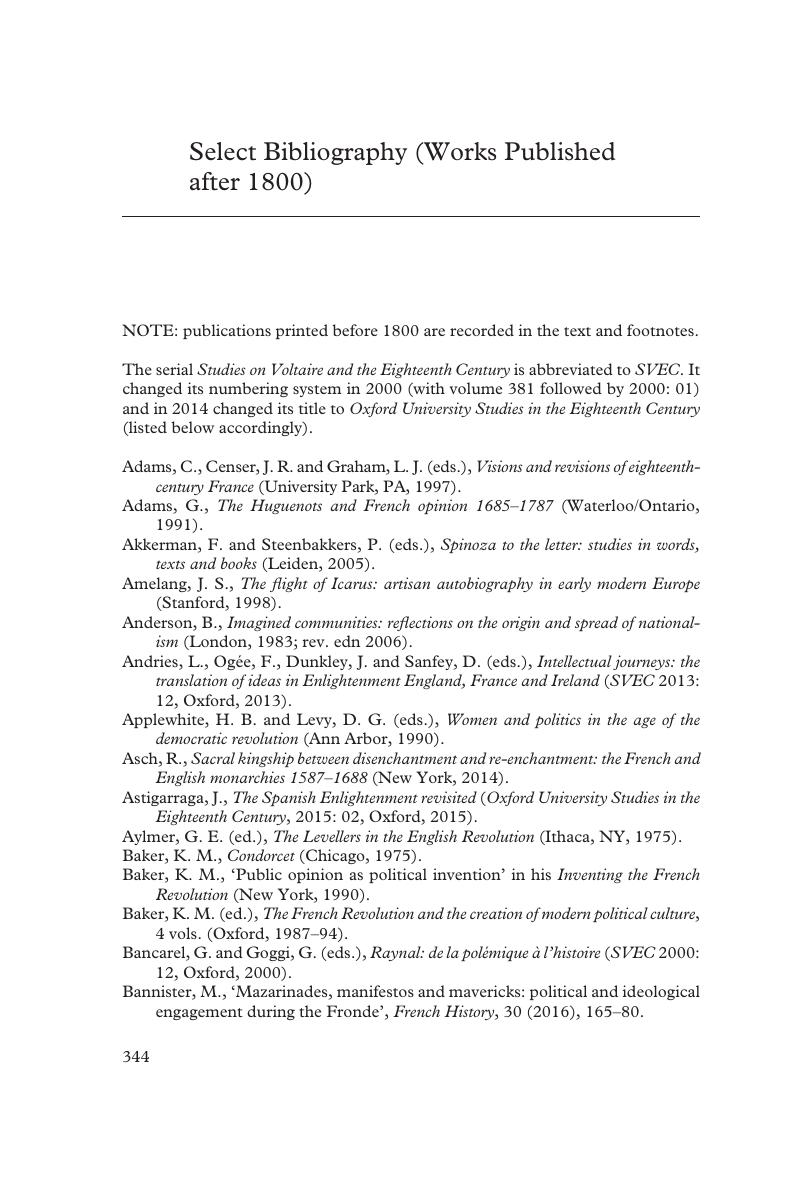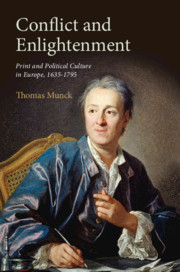Book contents
- Conflict and Enlightenment
- Conflict and Enlightenment
- Copyright page
- Contents
- Figures
- Acknowledgements
- Introduction
- 1 Print, Production, Authors and Readers
- 2 Instability and Politicisation (1630–77)
- 3 Subversive Print in the Early Enlightenment
- 4 Translation and Transmission across Cultural Borders
- 5 High Enlightenment, Political Texts and Reform 1748–89
- 6 Revolution: Democracy and Loyalism in Print 1789–95
- Conclusions
- Select Bibliography (Works Published after 1800)
- Index
- References
Select Bibliography (Works Published after 1800)
Published online by Cambridge University Press: 21 October 2019
- Conflict and Enlightenment
- Conflict and Enlightenment
- Copyright page
- Contents
- Figures
- Acknowledgements
- Introduction
- 1 Print, Production, Authors and Readers
- 2 Instability and Politicisation (1630–77)
- 3 Subversive Print in the Early Enlightenment
- 4 Translation and Transmission across Cultural Borders
- 5 High Enlightenment, Political Texts and Reform 1748–89
- 6 Revolution: Democracy and Loyalism in Print 1789–95
- Conclusions
- Select Bibliography (Works Published after 1800)
- Index
- References
Summary

- Type
- Chapter
- Information
- Conflict and EnlightenmentPrint and Political Culture in Europe, 1635–1795, pp. 344 - 363Publisher: Cambridge University PressPrint publication year: 2019



